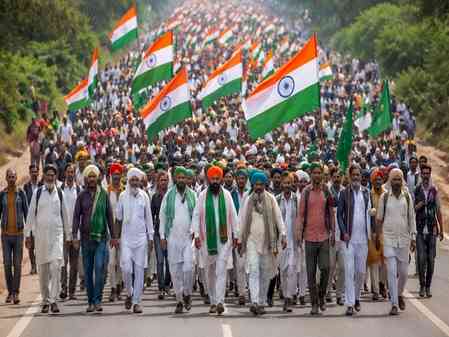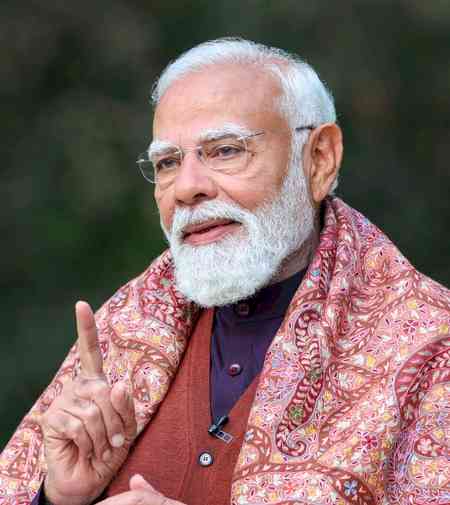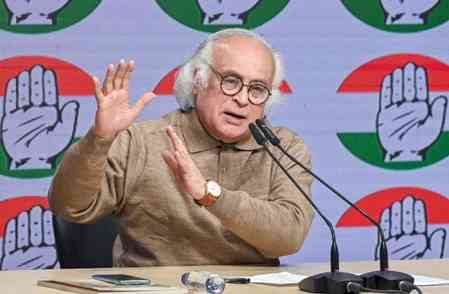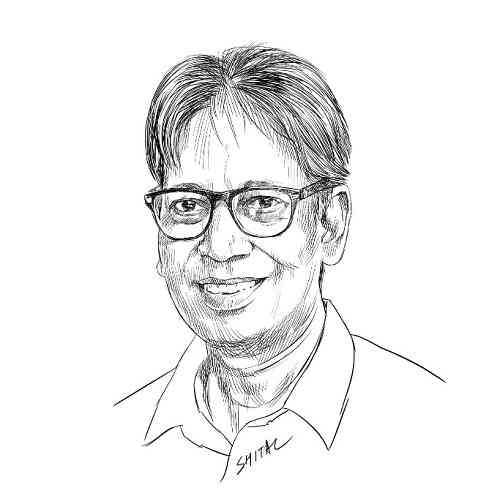Home Ministry likely to clear path for creating thousands of govt jobs for Ladakh youth
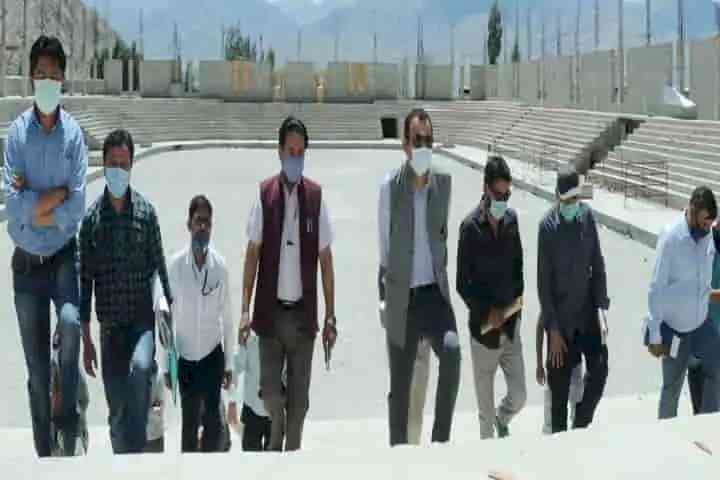
By Ahmed Ali Fayyaz
New Delhi, Dec 6: The Union Ministry of Home Affairs has called a high-level meeting to consider, and possibly concede some demands from the collective leadership of the Union Territory (UT) of Ladakh, ahead of the December 13 shutdown jointly called by Leh Apex Body (LAB) and Kargil Democratic Alliance. According to highly placed authoritative sources, there would be threadbare discussion on all the four key demands of the Ladakh leadership in the meeting to be held in the afternoon on December 8.
"There's a strong possibility of one of the four demands -- immediate recruitment of 10,000 to 12,000 unemployed youths into the government services -- being conceded by the Centre even as a discussion would continue over the other demands," said an official source well-versed with the conciliation process.
Prime Minister Narendra Modi's and Home Minister Amit Shah's commitment to restore Statehood to the UT of Jammu and Kashmir (J&K) spurred fresh demands in Ladakh early this year. The united leadership raised the demand of statehood with the legislature on the J&K pattern. In the August 2019 breakup, J&K was made a UT with Assembly and Ladakh, which had four seats in erstwhile J&K Assembly, was made a UT without legislature.
Over a dozen political, social, religious and student organisations of Leh and Kargil districts have been united in the LAB, headed by the former two-time Lok Sabha member Thupstan Chhewang, and KDA headed by the former MLA of Kargil, Haji Ali Asgar Karbalaie. They are seeking full statehood for Ladakh, constitutional safeguards to protect Ladakh's land, distinct identity and culture, two Lok Sabha seats (one each for Leh and Kargil district) besides recruitment of unemployed youths against 10,000 to 12,000 vacancies in the government services.
Initially there were divergent reactions in the Buddhist-dominated Leh and the Muslim-dominated Kargil to the Government of India's historic decision of separating Ladakh from the erstwhile state of J&K and granting it the status of an independent UT on August 5, 2019. While there was jubilation in Leh, the people of Kargil wanted to continue as a part of the UT of J&K. Eventually, the leadership raised the demand for powers on the pattern of Bodoland Territorial Council under the 6th schedule of the Constitution of India.
The all-party alliance in Leh called for boycott to the elections of Ladakh Autonomous Hill Development Council (LAHDC) in September 2020 which was subsequently withdrawn after the intervention of Union Home Minister Amit Shah. One Minister of State in MHA was assigned the responsibility of holding a dialogue process with the collective leadership, both in Leh and Kargil districts.
Finally, the elections were held in the 30-member LAHDC Leh in which four members are nominated by the Lieutenant Governor. Sixteen seats were occupied by the BJP and nine by the Congress. One seat went to an independent. The National Conference and the Peoples' Democratic Party abstained from the elections.
Not satisfied with the progress of the negotiations, and irked by the Centre's alleged attempts to marginalise the Ladakh leadership, there was another call for the shutdown in Ladakh on August 29, 2021. The alliance complained that MoS in the MHA, Nityanand Rai, had sidelined the collective leadership during his visit to the UT and kept his meetings limited to only some BJP leaders. Late that night, Union Home Minister Amit Shah himself spoke to the LAB Chairman, Thupstan Chhewang with the assurance that the entire leadership would be taken on board.
On November 13, 2021, the alliance complained that the talks, assured by Shah, had not even started. It called for a complete shutdown across Ladakh on December 6 which was subsequently deferred to December 13.
The decision to launch an agitation was taken in a three-hour long meeting which was attended by nearly 24 constituents of the LAB and KDA on November 13. It was announced at a joint press conference addressed by Chhewang and Karbalaie.
According to the knowledgeable sources, the J&K Chief Secretary Arun Kumar Mehta, Ladakh's Chief Secretary and Advisor to LG, Umang Narula, Joint Secretary UT Division in the MHA and Chairman Staff Selection Commission (SCC) would also join the high-level meeting by video conference which would be presided over by the Union Home Secretary Ajay Kumar Bhalla on December 8. The SCC Chairman's presence in the meeting is an indication of the Centre's willingness to concede the demand of the recruitment of 10,000 to 12,000 youths.
Sources said the MHA was likely to draw a roadmap for filling up vacancies in the UT's government departments. Initially, these vacancies could not be notified for recruitment in absence of the MHA's guidelines for domicile certificate after abolition of the erstwhile state's (Permanent Resident Certificate (PRC), or State Subject Certificate) in August 2019. It was subsequently resolved when the government notified that only the holders of the erstwhile PRC would be eligible for appointment in the UT's government services.
Due to paucity of manpower, a number of the J&K UT employees, including some IAS, IPS, JKAS and JKPS officers and non-gazetted officials, are still working on deputation basis in Ladakh. While some of the Ladakh residents are satisfied with their absorption in the Ladakh UT services, some of them, as also all those from Kashmir and Jammu regions, have been demanding their permanent absorption in the J&K UT services.
Ladakh's traditionally non-violent Buddhist minority was brought to the edge of a revolt twice in the 1980s. On January 24, 1981, two Buddhists were killed in the police firing in the middle of their agitation seeking Scheduled Tribe status for all residents of the hill region which was ultimately granted in 1989.
In 1989, the Buddhists of Ladakh raised the demand of separation from the erstwhile J&K state and reorganisation into a UT. The agitation, sponsored by Ladakh Buddhist Association (LBA), headed by Thupstan Chhewang, and Ladakh Peoples' Movement (LPM) turned violent when three demonstrators got killed in the Police firing in Leh on September 13, 1989. There were sporadic attacks and arson on the Kashmiri traders at several places.
During the President's rule in J&K, the Government of India agreed to create the Ladakh Autonomous Hill Development Council in October 1993. The President made and notified The J&K LAHDC Act in June 1995. The first elections for LAHDC in Leh were held on August 28, 1995 and it held its first meeting on September 3, 1995.
The President's Act was subsequently ratified and amended by the J&K Legislature in 1997. In July 2003, an identical autonomous council was created for Kargil. Finally, the Ladakhis' old demand for separation from the J&K state and the status of an independent UT was granted by the BJP-led NDA government at the Centre with the passage of the J&K Reorganisation Act in the Parliament in August 2019.
(The content is being carried under an arrangement with indianarrative.com)
--indianarrative



 IANS
IANS 
